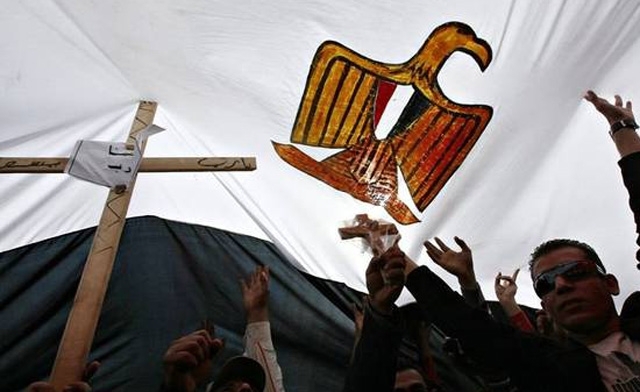CAIRO: The decision to retry imprisoned blogger Maikel Nabil, who has been on a hunger strike for 53 days, is “cruelly toying with his life,” Amnesty International said, calling for his immediate and unconditional release.
“The charges against [Nabil] must be dropped and he should be released immediately and unconditionally. He should never have been tried in the first place, let alone before a military court,” a statement by Amnesty International read.
Earlier this week, a military court dropped a three-year prison sentence handed down to Nabil and ordered a retrial, also in a military court. His retrial is scheduled for Oct. 18, according to media reports.
“Forcing him to face the same unfair proceedings all over again is especially cruel given the frail state of his health,” Amnesty said.
Nabil remains in detention until his retrial despite calls from his lawyers and family for his release.
"We presented an official request to the court to release my son who has been on a hunger strike … his health condition is deteriorating and he has to be transferred immediately to the intensive care unit," Maikel’s father Nabil Sanad told Daily News Egypt on Tuesday.
Amnesty, which considers Nabil a prisoner of conscience, said that he is in very poor health and that prison authorities have denied him the necessary medication to treat a heart condition.
He was previously charged with insulting the armed forces and spreading false news in a blog post titled "The army and the people are not one hand" last March.
The blog post in question gathers evidence of what is said to be violations by the army and the military police during and after the revolution, and recounts what Nabil calls “the army’s conspiracy against the revolution.”
Nabil went on a hunger strike in protest of what he considers discrimination against him, after the ruling military council pardoned activists Asmaa Mahfouz and Loai Nagati for similar charges.
In its statement, Amnesty said it opposes trying civilians before military courts and considers these courts as “fundamentally unfair, as they deprive defendants of some of the basic guarantees of fair trial, including the right to appeal.”
Rights groups say more than 12,000 civilians have been tried in military courts since the uprising that toppled president Hosni Mubarak.


